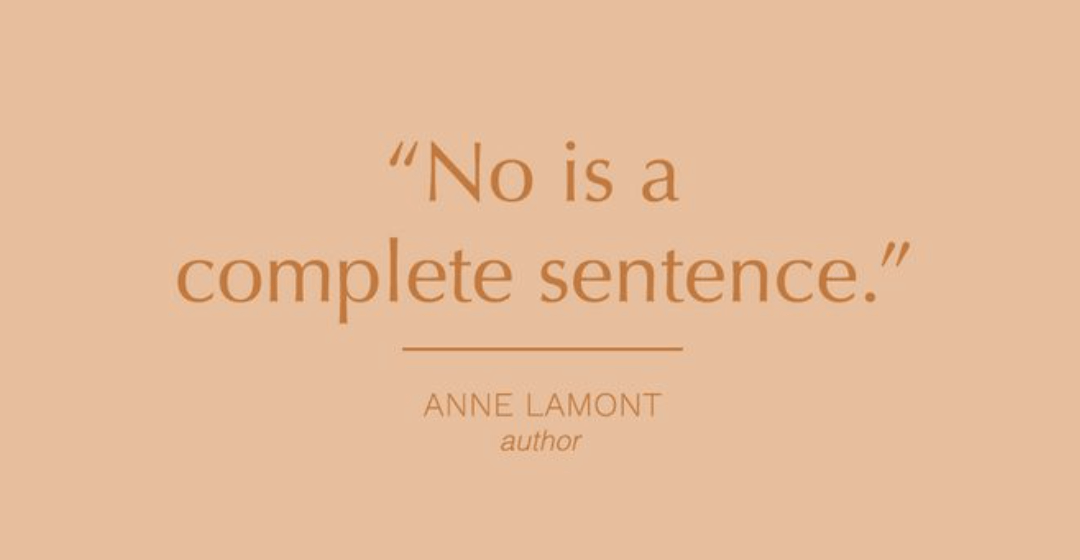As women, we often take on the role of caretakers, prioritizing the needs of others over our own. While this is a noble and selfless trait, it can also lead to burnout, resentment, and a lack of personal fulfillment.
If you’re feeling stuck or unfulfilled, it’s time to consider setting boundaries in your personal and professional relationships.
In this article, we’ll explore what boundaries are, how to establish them, and the many benefits of doing so. By the end, you’ll feel empowered to set boundaries that prioritize your own well-being and happiness.
Understanding Boundaries

Before you can set boundaries, it’s important to understand what they are and why they matter.
Boundaries are the limits we set for ourselves in our relationships with others. They are the lines we draw to protect our emotional and physical well-being, to define our personal values and beliefs, and to communicate our needs to others.
DON'T WAIT: Learn the strategies to end conflict and (finally) be heard
Boundaries can take many forms, from saying “no” to a request that goes against your values, to creating physical distance from toxic people or situations.
Establishing boundaries can be challenging, especially if you’ve been conditioned to prioritize others over yourself.
However, setting boundaries is essential for a fulfilling and healthy life. Without boundaries, we risk feeling overwhelmed, exhausted, and disrespected.
The Importance of Setting Boundaries
The benefits of setting boundaries are numerous and far-reaching.
Here are just a few examples of how setting and maintaining your boundaries can improve your life:
- Improved self-esteem and self-worth
- Healthier and more respectful relationships
- Reduced stress and anxiety
- Increased confidence and self-assurance
By setting boundaries, you’re prioritizing your own well-being and happiness. You’re communicating to others that you have self-respect and that you’re worthy of respect from others.
Identifying Your Personal Boundaries
The first step to setting boundaries is identifying your personal values, beliefs, and needs.
Think about what matters most to you, what brings you joy and fulfillment, and what makes you feel respected and appreciated.
It can be helpful to write these things down, as it makes them feel more concrete and tangible. You can also reflect on past experiences where your boundaries were violated and what you could have done differently.
Once you’ve identified your personal boundaries, it’s important to communicate them to others.
This can be difficult, especially if you’re not used to standing up for yourself. However, it’s essential to be clear and assertive when communicating your boundaries. Use “I” statements to express your needs and expectations, and avoid blaming or shaming others for their behavior.
Remember, your boundaries are about you and what you need to feel safe and respected.
Setting and Communicating Your Boundaries

Setting and communicating boundaries requires practice and patience. It can be challenging to break old patterns of behavior and assert yourself in new ways. However, it’s essential to be consistent and persistent in setting and maintaining your boundaries.
Here are some tips to help you get started:
- Practice saying “no” to requests that don’t align with your values or needs
- Use clear and assertive language when communicating your boundaries
- Avoid apologizing or making excuses for your boundaries
- Be prepared for pushback or resistance from others, and have a plan in place for how to respond
WATCH: The counterintuitive approach that helps you get what you need out of relationships
How to Establish Boundaries (The Right Way)
There’s no one definitive way to establish boundaries. However, there are a few key steps you can take to get started:
- Learn what you need and want: Before setting any boundaries, it’s important to first understand what you need and want. This will help you to identify the boundaries that are important to you and to make sure you’re not setting boundaries that are more important to others than they are to you.
- Communicate your needs and feelings: Once you know what you need and want, it’s important to communicate these needs and feelings to those who matter to you. This includes your friends, family, and romantic partners. It’s important to be clear and concise in your communication, so that everyone understands your boundaries.
- Establish boundaries that are reasonable: Make sure your boundaries are reasonable. This means that you don’t set boundaries that are too difficult or unrealistic to uphold. If your boundaries are too difficult to follow, you may find that you’re unable to maintain your relationship or friendships.
Resources and Support

Setting boundaries can be challenging, especially if you’re not used to putting yourself first. That’s why it’s important to find resources and support to help you on your journey. Here are some ideas:
- Join a support group or community focused on boundary-setting
- Seek out an experienced coach to work through past traumas or challenges that may be impacting your ability to set boundaries
- Read books or articles on the topic, such as “The Art of Saying No” by Damon Zahariades, “Boundaries: When to Say Yes, How to Say No To Take Control of Your Life” by Dr. Henry Cloud and Dr. John Townsend, or “Where to Draw the Line: How to Set Healthy Boundaries Every Day” by Anne Katherine
- Practice self-care activities that promote relaxation and stress-reduction, such as meditation, yoga, or mindfulness exercises.
By seeking out support and resources, you’ll feel less alone and more empowered to set and maintain your boundaries.
Build Stronger Connections with Those You Love
Setting boundaries can be a challenging but essential part of personal growth and empowerment.
By prioritizing your own needs and communicating them clearly and assertively, you’ll create healthier, more fulfilling relationships and a greater sense of self-worth.
Remember that setting boundaries is a process, and it’s okay to make mistakes and learn from them. With practice and perseverance, you’ll be able to establish healthy, respectful relationships that honor your values and needs.
STOP: Learn a better way to handle conflicts with those you care about the most
